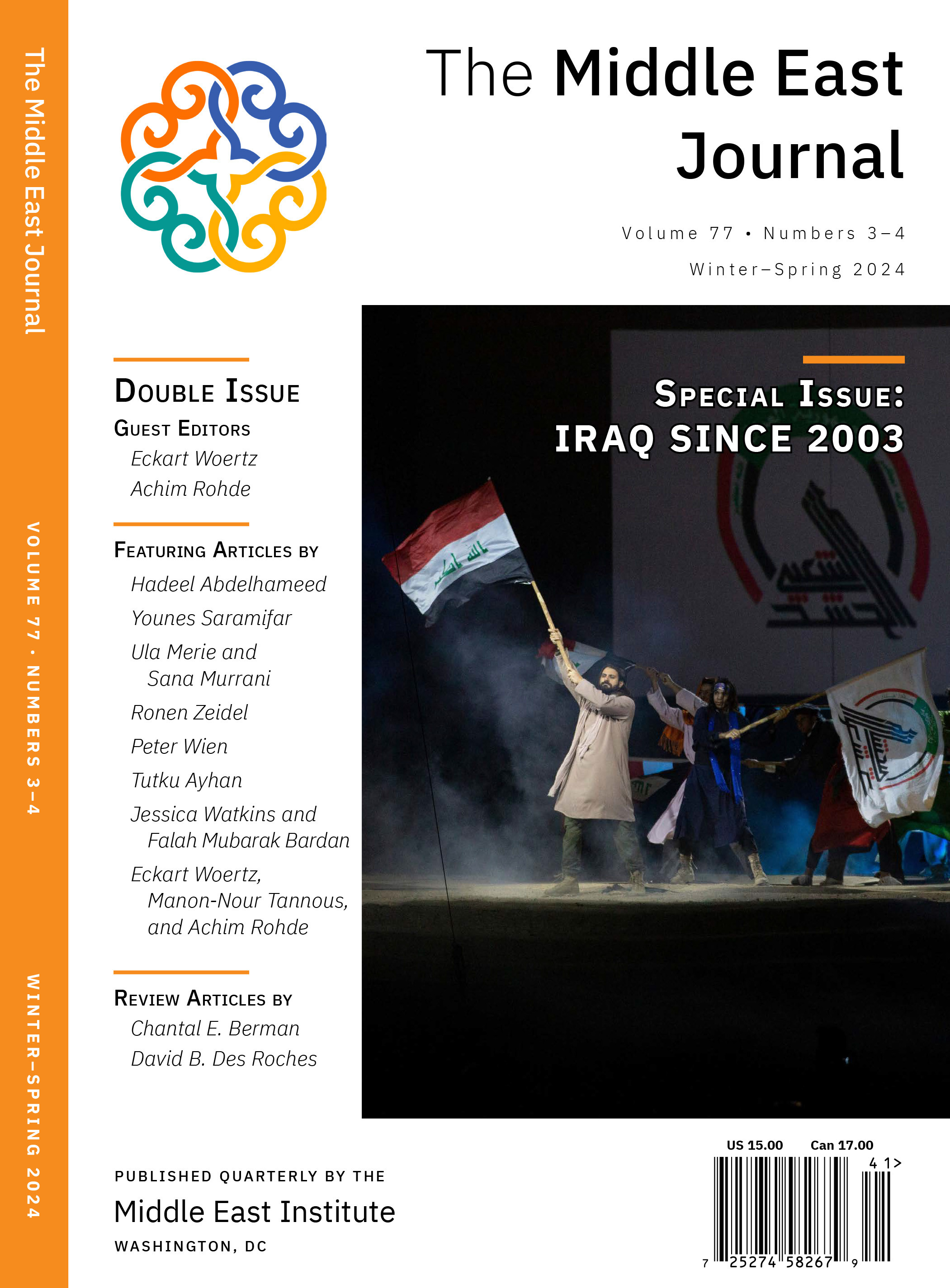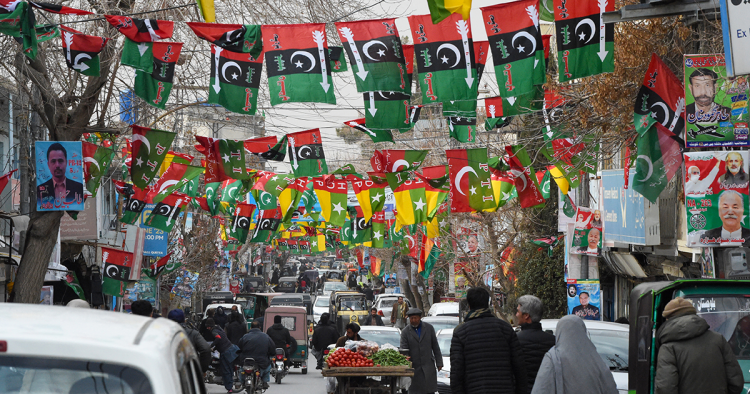Though delayed by several months, Pakistan is now on the verge of a national election on Feb. 8 that will replace an elected government ousted in April 2022 by an opposition-cum-military alliance. An interim government determined to run out the remainder of a sitting National Assembly’s term of office had refused to call fresh elections for months. A constitutionally mandated caretaker government that followed then put off setting a firm date. Even when a date was finally announced, many in Pakistan were convinced that some excuse for further delay would be found, and that the country was losing its claim to be a functional democracy. But now finally at hand are elections to determine the composition of a national government in Islamabad that can serve over the next five years.
More than half of the country's population, some 128 million Pakistanis, are eligible to vote, a number that makes Pakistan the fifth-largest declared democracy globally. The sheer magnitude of this electoral process is reflected in the participation of nearly 18,000 candidates vying for 226 National Assembly seats and 740 seats across four provincial assemblies. Among them, a substantial number, totaling 11,785, will be contesting independently, while 6,031 will be representing their respective political parties.
Independents add uncertainty, complexity
The large number of independent candidates, many of whom have strong constituent influence, may present a formidable challenge to their party-affiliated rivals. They bring a layer of complexity to the electoral landscape, adding to the uncertainty over outcomes and the composition of the next government. This is furthered by the constitutional provision that allows independent candidates, strategic targets for parties aiming to form a majority, to align with any of the other parties after the election.
Under these circumstances, two significant fears now surface for mainstream political parties anxious to claim power and avoid having a weak and unstable national government. Two scenarios seem possible. In one the major parties find that they must bid for the support of enough independently elected candidates, resorting to various means, including promises of perks and privileges, and conceding cabinet seats to win them over. As a consequence of this strategy, the grip of the leading party on power could be weakened by having to rely on the votes of independent parliamentarians to pass crucial legislation.
In the second scenario, mainstream political parties must worry about the possible emergence of a large body of independent parliamentarians who, by forming their own bloc, could pose a significant challenge to the calculations of the major parties. This independent bloc could overturn the elected government by filing a no-confidence motion. This opens up the possibility of an unstable government and the prospect that independent parliamentarians could force regime change.
Civil-military imbalance
Adding another layer to an already complicated political scene is Pakistan's checkered history of flawed democracy and the overthrow of elected governments. This instability can be attributed, in part, to a deep-rooted civil-military imbalance. Pakistan's civilian leadership has consistently struggled to unite politicians around shared policy goals and principles. Their political maneuvers often prioritize personal gain, fostering an environment where many pursue self-interest and readily switch allegiances for perceived advantage. Rather than forging alliances and building mutual trust to collectively address Pakistan's challenges, politicians have regularly resorted to undemocratic tactics to safeguard their own voter base and undermine their political adversaries. Their actions have help breed a culture of "turncoat" politicians, inviting the interference and undue influence of the military establishment in political affairs.
The power accrued by the military in the absence of strong civilian leadership over the years has led to a political configuration often described as an "establishmentarian democracy." This hybrid system of governance features a weak and divided political ruling class manipulated by a powerful military establishment. The general perception in Pakistan is that politicians can only access power through military approval. And even when in power, politicians have sought the military’s intervention to solidify their positions and eliminate rivals.
A closer look at the three main parties
The military’s putting its thumb on the scale largely explains the great number of independent candidates. The Pakistan Tehreek-e-Insaaf (PTI) party was expelled from the electoral race after losing its greatly valued electoral symbol, the cricket bat, overturning the default strategy of Imran Khan’s fight to salvage his party’s efforts to stay in the race. Rather than calling on its supporters to boycott the elections, the PTI has opted to participate by fielding independent candidates. Whether they can make a difference if elected depends, however, on the likely horse trading and changing post-election loyalties.
The PTI’s predicament has been deepened by the incarceration of its top leadership by the military and Khan’s entanglement in legal cases that make his return to power in the foreseeable future improbable. Should the PTI’s independent candidates succeed in winning, they face a crucial decision — to either throw their weight behind some other political party that promises to guarantee their interests or to sit in opposition. For the time being, however, party founder Khan has categorically refused to strike any deals with the mainstream parties, directing any of his winning PTI-backed independents to stand in opposition. Khan persistently promotes the narrative that the military establishment, fearing his return to power, has backed Pakistan Muslim League-Nawaz (PML-N) supremo Nawaz Sharif, who as a puppet prime minister would be succeeding to office for the fourth time. (Khan conveniently overlooks the fact that he, too, was a tool of the military for almost four years.)
Building his own narrative, Bilawal Bhutto-Zardari, the chairman of the Pakistan People’s Party (PPP), has advanced his claims of an unequal playing field designed to install a Nawaz Sharif government. Bhutto has strategically eyed PTI supporters, especially the youth who constitute 44% of the total electorate. He has presented himself and his party in the absence of jailed Imran Khan as best prepared to address their grievances and fight their battle against the PML-N. However, the PPP’s recent history of forming an alliance with the PML-N has created challenges to his efforts to win the trust of Khan's followers.
Despite the absence of formal alliances, both the PTI and the PPP are in agreement that Nawaz Sharif is counting on a backdoor means to become prime minister. If he succeeds in winning, as seems most probable, the outcome will almost certainly provoke criticism about a lack of fairness and authenticity — a victory more the result of selection than election. The PML-N has sharply denied allegations of receiving support from the military establishment, claiming that its strength derives from past economic policy successes and dissatisfaction with the performance of Imran Khan when he was prime minister. The absence of civility and trust among political stakeholders, coupled with a strong perception that the elections are pre-rigged and the country’s deep political divisions, has cast a shadow over the legitimacy of the electoral process even before the votes are counted.
For voters, the elections will have little to do with choosing between competing ideologies or preferred political programs and much more to do with the personalities of the key leaders running as well as accumulated grievances. The three leading political parties, the PML-N, the PPP, and the PTI, launched their manifestos only days before the general election, leaving limited time for study and debate of their plans. Instead, the parties’ political campaigns have been predominantly focused on playing the blame game and avoiding responsibility. The parties have engaged in undermining one another by discrediting their leaders and striking cynical deals necessary to solidify their traditional voting blocs. Taken together these practices have exacerbated existing political polarization and widened societal differences that threaten to make Pakistan’s already dysfunctional politics potentially more radical and violent.
This clash between the major political parties and the ideological niches left unattended by them has provided an opportunity for smaller parties with strong ideological roots to emerge. These smaller parties have a single-point agenda centered around the promotion of religious, social, economic, and ethnic causes. While they might not be serious claimants to national power, they may garner support from voters who see them as an alternative to the mainstream parties.
What to expect from the new government
Amid the uncertainties surrounding the current, highly polarized elections, it is unrealistic to anticipate that a new government will be the vehicle for much-needed structural reforms and progressive changes. None of the competing parties has a clear roadmap for dealing with Pakistan’s deepening economic, social, and environmental crises, or is likely to feel the need to try to heal the recent heightened political bitterness. Despite political parties making promises to address the various crises, their past performance offers few compelling reasons to place trust in them. Under these circumstances, post-election political stability in Pakistan hardly looks secure.
Reflecting on the country’s dysfunctional politics, Army chief Gen. Asim Munir has urged voters not to elect incompetent leaders and to hold lawmakers accountable after the elections. Viewing politicians as power-hungry, Gen. Munir has asserted that with all political parties giving primary attention to the goal of gaining power, no attention is given to their delivering good governance. In the absence of change, the general’s assessment casts further doubt on Pakistan’s capacity to achieve a more effective and stable civilian government. Munir’s remarks also stand as a not too veiled warning that if the civilian leadership and the public fail to take heed of his admonitions, the military, with its already outsized influence in governance, is prepared to take a more direct hand in running the country’s affairs.
Dr. Marvin G. Weinbaum is the director of the Afghanistan and Pakistan Studies Program at the Middle East Institute.
Naad-e-Ali Sulehria has over five years of involvement working with international organizations and think tanks in different capacities as a political researcher, policy advisor, peace strategist, and human rights practitioner. He currently serves as a Research Assistant to Dr. Marvin G. Weinbaum, Director for Pakistan and Afghanistan Studies at the Middle East Institute.
Photo by BANARAS KHAN/AFP via Getty Images
The Middle East Institute (MEI) is an independent, non-partisan, non-for-profit, educational organization. It does not engage in advocacy and its scholars’ opinions are their own. MEI welcomes financial donations, but retains sole editorial control over its work and its publications reflect only the authors’ views. For a listing of MEI donors, please click here.












